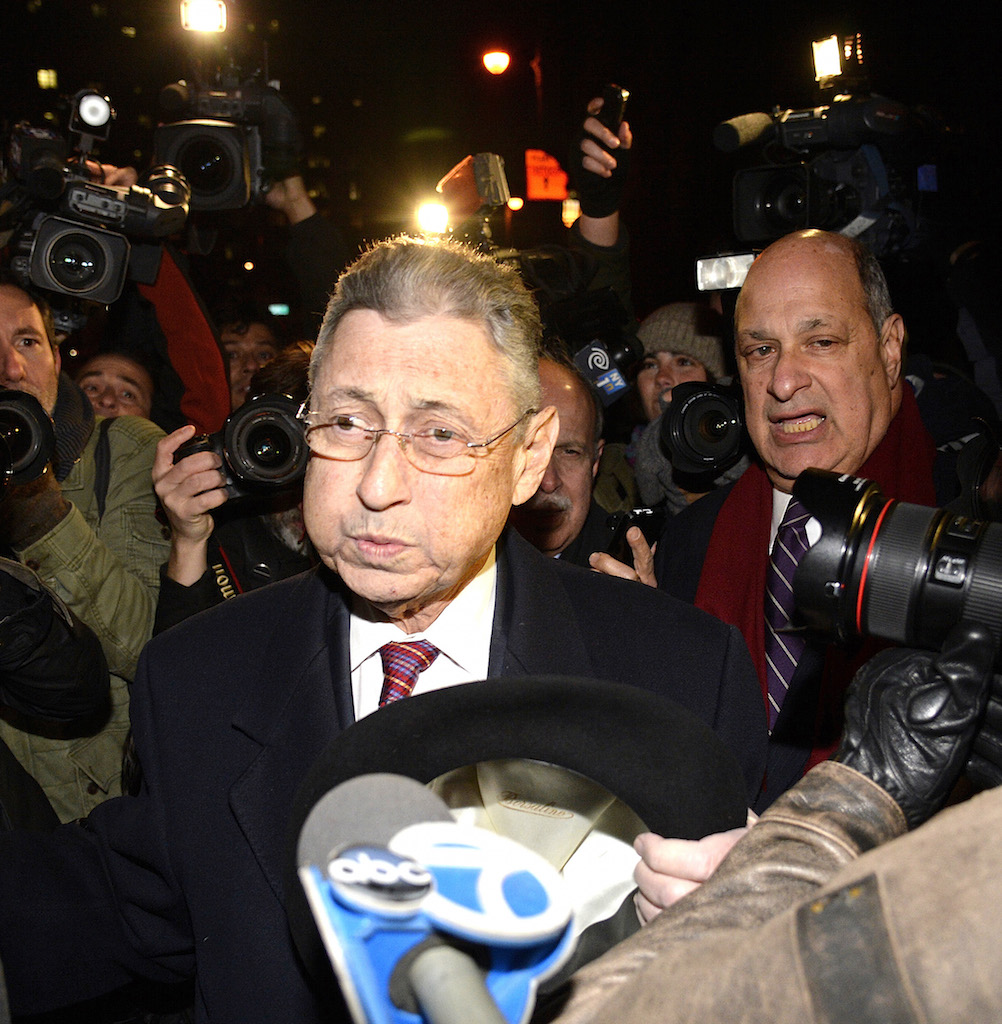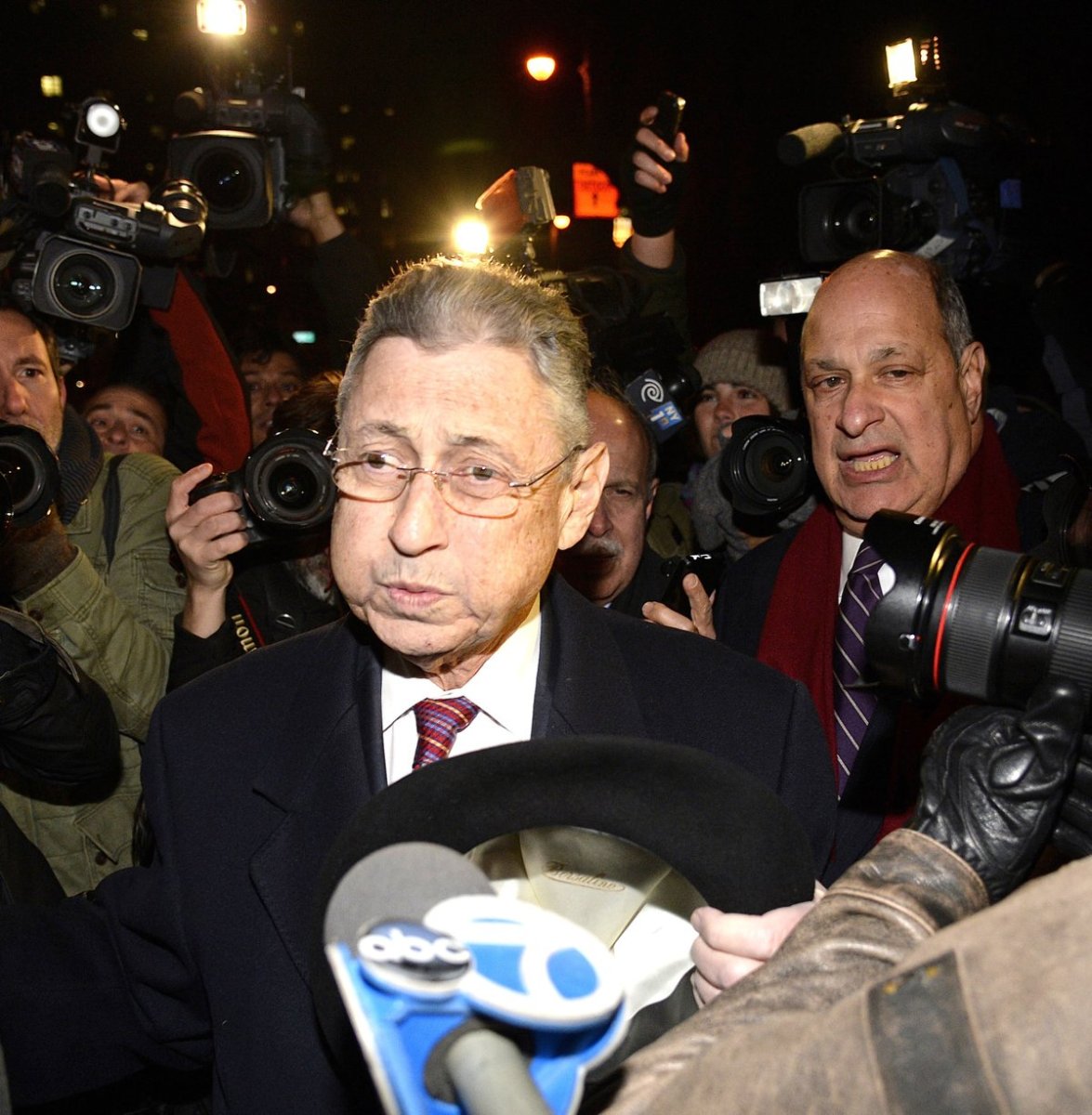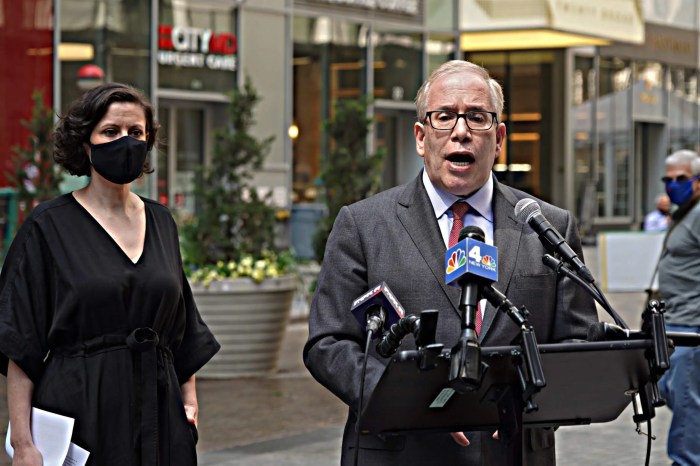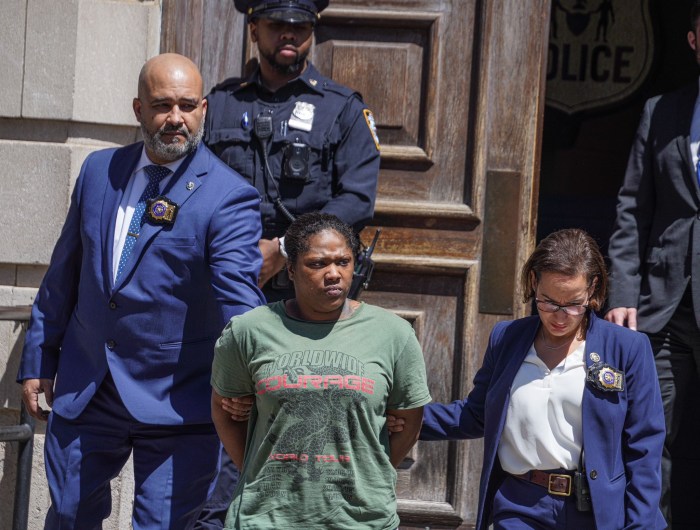
BY MARY REINHOLZ | Sheldon Silver, the once-powerful New York State Assembly speaker turned criminal defendant, still shows he has the savvy of a street-smart power broker. He wants his lawyers to get him a hearing before the U.S. Supreme Court in the aftermath of a July 13 decision by the U.S. Court of Appeals for the Second Circuit tossing his conviction on corruption charges.
The Associated Press reported late last week that Silver defense attorney Steven Molo has notified the three-judge appellate panel in Manhattan of his plan to request a SCOTUS review on behalf of his client, who continues to remain free on bail.
Silver, a 73-year-old Democrat and lifelong Lower East Side resident, still faces federal charges that he abused his former office as speaker to obtain nearly $4 million in purported kickbacks and bribes disguised as legal referrals from two law firms that had retained him as counsel. He was found guilty last year of seven felonies, including extortion, honest-services fraud and money laundering. U.S. District Court Judge Valerie Caproni slapped him with a 12-year sentence.
Caproni has a mandate to preside at a second trial for Silver, even though the Court of Appeals judges ruled that she erred in giving jurors in his first one overly broad instructions on what constitutes a corrupt official act. To buttress their ruling, they cited a 2016 SCOTUS decision overturning the corruption conviction of Bob McDonnell, a former Republican governor of Virginia, and his wife, Maureen. The McDonell decision narrows the definition of bribery. However, the Second Circuit Court of Appeals judges said government prosecutors did have sufficient evidence to prove Silver’s case at another trial.
Justin H. Kim, acting U.S. attorney for the Southern District, has said he’s looking forward to his office trying and convicting Silver a second time. He made his intentions known again in a letter to Caproni dated July 24. “The Government intends to re-try the defendant, and believes it is in the public interest for that re-trial to occur promptly,” Kim’s letter states, in part.
Kim notes that his office does not seek further review of its decision on Silver’s conviction, but points out that “the defendant” has notified the Second Circuit that he plans to file a motion to stay the mandate, “pending the filing for a writ of certiorari [the record of the case from the lower court] to the U.S. Supreme Court.”
Kim’s letter goes on to state that Silver’s motion to stay the mandate is due on July 27 and concludes: “The Government plans to oppose the defendant’s motion and, if the motion is denied, will seek to reschedule a re-trial at the Court’s earliest convenience.”
Sources in the Justice Department say Southern District prosecutors had considered appealing the Second Circuit decision on the Silver verdict, but decided to try him again.
That may not be so easy to pull off the second time around. Several prominent figures in New York’s legal community say that Silver’s case has been weakened by the dismissal of his conviction and was flawed from the get-go.
“I don’t know any judge or lawyer who expected [Silver’s] conviction to stand,” said Manhattan attorney Emily Jane Goodman, a former New York State Supreme Court justice. She added that most of the attorneys she knows regard Silver’s alleged misdeeds in public office to be ethical lapses more than criminal conduct. Goodman, however, doubts that SCOTUS will accept Silver’s case.
“But if they did, they are not going to order the case dismissed,” she opined in an e-mail to this reporter. “The U.S. prosecutors will fight this vehemently and the boss — [U.S. Attorney General] Jefferson Sessions or his successor — will never voluntarily back off trying a heavyweight Democrat imo [in my opinion].
“Even if they now view the case as substantially weaker, they’ll still let it go to a jury so they have jurors to blame if they lose the case.”
Defense attorney Molo was not available for comment, but his co-counsel Joel Cohen told The Villager that Silver’s prosecution “never should have been brought.” He acknowledged that the former Assembly speaker was not acquitted by the appellate panel, but noted that the three judges ruled “he could have been acquitted by rational jurors if they had been properly charged. The prosecution should have anticipated the McDonnell decision,” he added.
Famed criminal defense lawyer Murray Richman of the Bronx, also known as “Don’t Worry Murray,” said he had predicted the reversal of Silver’s conviction early on and had told several reporters “that this case is bulls—.”
Richman, who has defended disgraced politicians, mafia figures and hip-hop artists, including rapper DMX — recently charged with income tax invasion — believes that the government’s case against Silver has been “greatly diminished.” Prosecutors, he said, will have a hard time gathering witnesses, including “the old doctor.”
He was referring to Dr. Robert Taub, a cancer researcher at a Columbia University clinic to whom Silver funneled $500,000 in two state grants in 2005 and 2006. Silver had recommended that Taub refer patients suffering from asbestos-related mesothelioma to Weitz & Luxemberg, a leading personal-injury law firm that had put Silver on its payroll around 2000. Silver received about $3 million from his share of the referrals.
Taub’s testimony was at the heart of the government’s case, even though the doctor, who agreed to testify in exchange for no prosecution, admitted during cross-examination by Molo that he did not have an “explicit” agreement with Silver to exchange referrals for grants, according to The New York Times.
A second alleged quid pro quo scheme by Silver concerns about $700,000 he received in referral fees from the small Downtown law firm of Goldberg & Iryami for steering the tax appeal business of real estate developers Glenwood Management and the Witkoff Group. In return, Silver allegedly arranged for favorable legislation in Albany on rent regulations for the developers.


















